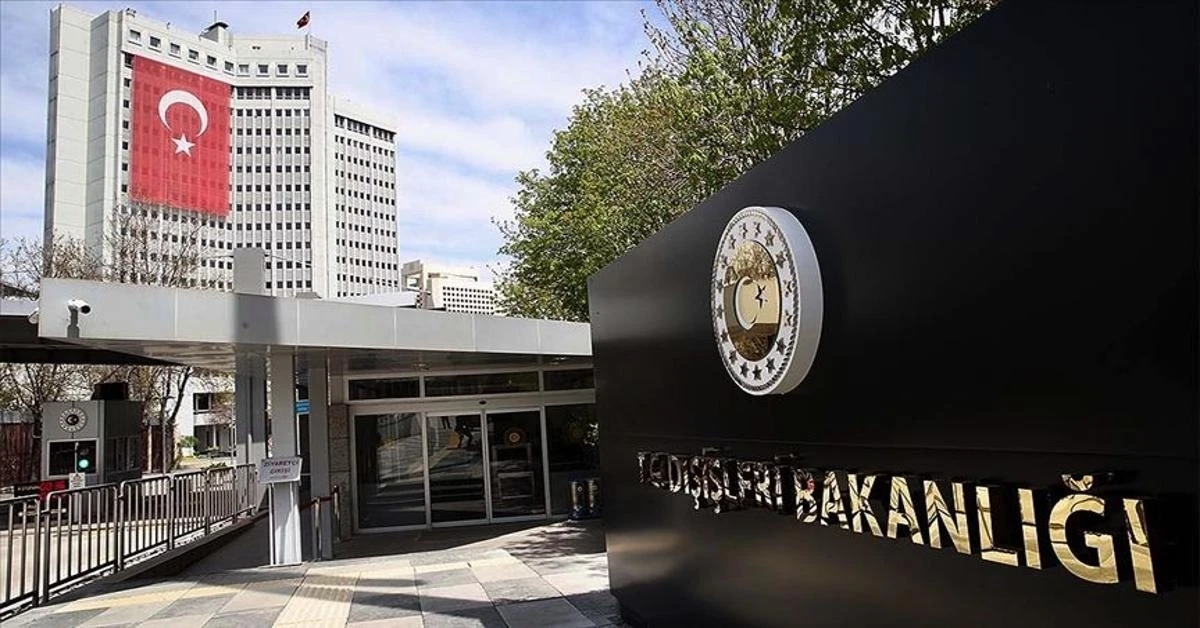Turkey angrily responded on Thursday afternoon to the latest, more-or-less negative enlargement report by the EU Commission on its long-standing bid to join the bloc, taking particular umbrage over its standing refusal to recognize the Republic of Cyprus, which represents the entire Greek Cypriot community on the divided east Mediterranean island.
The EU enlargement report also cited the continued refusal by Turkey to allow Cypriot-registered vessels and airplanes – which belong to an EU member-state – to access its ports and airports.
Turkey continues to occupy one-third of the island republic’s territory since its invasion in July 1974, fields a large occupation army of roughly 35,000 troops and has propped up a Turkish Cypriot pseudo state it established in 1983.
Turkish ire
In an acrimonious reply, Turkey’s foreign ministry claimed the European Commission’s EU enlargement report was biased in favor of Cyprus and the findings were “unrealistic and unlawful,” dealing with the Cypriot problem.
Over the recent period, both Turkish President Recep Tayyip Erdogan and Turkish Cypriot leader Ersin Tatar dismissed the possibility of a solution based on a bi-zonal, bi-communal basis, as foreseen by UN Resolutions, instead calling for a formal partition and two separate countries on the island, something Nicosia adamantly rejects.
Conversely, the report praised Turkey for hosting some 3.6 million refugees fleeing Mideast warzones and economic hardships.
Official reax
In its response, the Turkish foreign ministry stated:
“On October 30, the European Commission released the 2024 Enlargement Strategy and the Country Reports prepared for all candidate and potential candidate countries, including Türkiye.
We reject the unfair assessments by the EU in the 2024 Türkiye Report, particularly on the political criteria and internal political dynamics.
It is worth noting that the Report makes reference to the progress made in macroeconomic policies and emphasizes the advanced level of Türkiye’s functioning market economy as well as its capacity to cope with competitive pressures and market forces within the Union.
The Report confirms that Türkiye has made significant progress in aligning with the EU standards in many areas by harmonizing its legislation with the EU acquis. The revitalization of all suspended structural dialogue mechanisms, such as the Association Council and High Level Dialogues in critical areas, will allow for joint actions in various domains.
The Report highlights that Türkiye has played a constructive role in the Eastern Mediterranean, improved its relations with Greece and enhanced trade cooperation with the EU. Given Türkiye’s constructive approach, as noted in the Report, we expect the political blockages on Türkiye-EU relations imposed by the Council Conclusions of 15 July 2019 to be lifted.
On the other hand, the Report reflects the unrealistic, unlawful and maximalist views of Greece and the Greek Cypriot side, while completely disregarding the legitimate concerns and justified policies of both Türkiye and the Turkish Republic of Northern Cyprus (sic).
We wish to underline that the format for the settlement of the Cyprus issue solely includes the two sides on the Island, the three Guarantor powers and the United Nations. Any future settlement must be reached through the agreement of the two sides on the Island. The EU’s statements regarding the Cyprus issue, which unconditionally reflect Greek Cypriot positions and take no account of the inherent rights of the Turkish Cypriot people, do not contribute to settlement efforts, and prove why the EU’s participation in a settlement process is not a viable option. It is also worth noting that the EU does not possess the authority or jurisdiction to determine the borders of third countries.
In light of current regional and global challenges, it is evident that a fresh perspective on Türkiye-EU relations is required. The recent re-engagement efforts of the EU with Türkiye are a welcome development. Nevertheless, the revitalization of relations hinges on tangible measures driven by the EU’s political resolve and strategic vision.
We would like to reiterate that, as a candidate country, Türkiye’s political will to enhance Türkiye-EU relations in a constructive way is clear and strong. The progress expected from Türkiye in the EU membership process will be expedited if the EU pursues a constructive and strategic approach with concrete steps, in conformity with Türkiye’s candidate status.
In this regard, we also expect the implementation of the recommendations outlined in the Joint Communication drafted by the European Commission and High Representative without any further delays or additional preconditions.”



